Top 10 Vacation Sleep Hacks
- Lorraine Irlam, Registered Clinical Counsellor

- Jul 17, 2023
- 6 min read
If you’ve you ever thought, “What if I can’t sleep on my vacation?!!”, you’re not alone.
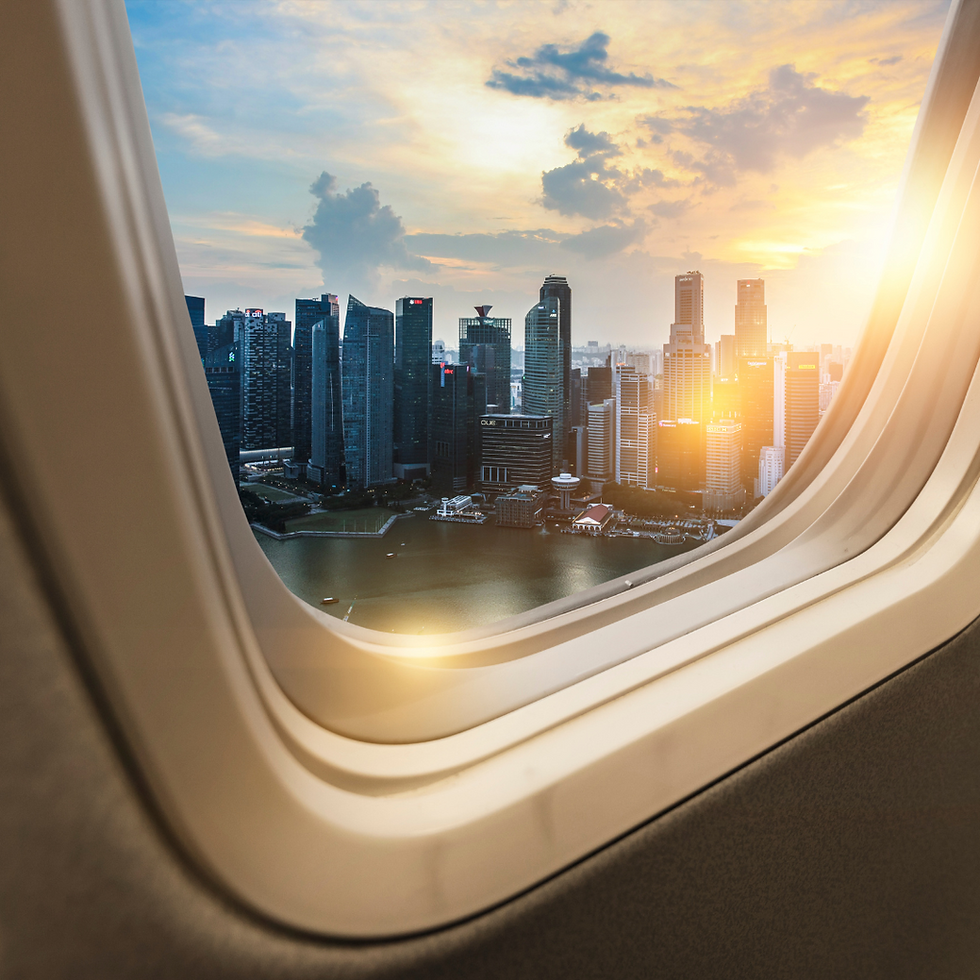
This is one of the most frequent questions I’m asked at this time of year. And if you’re no stranger to insomnia, your worries might sound something like this:
I always have insomnia when I travel. I’m already feeling anxious about it in advance. It’s unlikely I will sleep well, so there’s no point in going. I won’t enjoy it. It will be a waste of money, a waste of my vacation time. Should I cancel my trip?
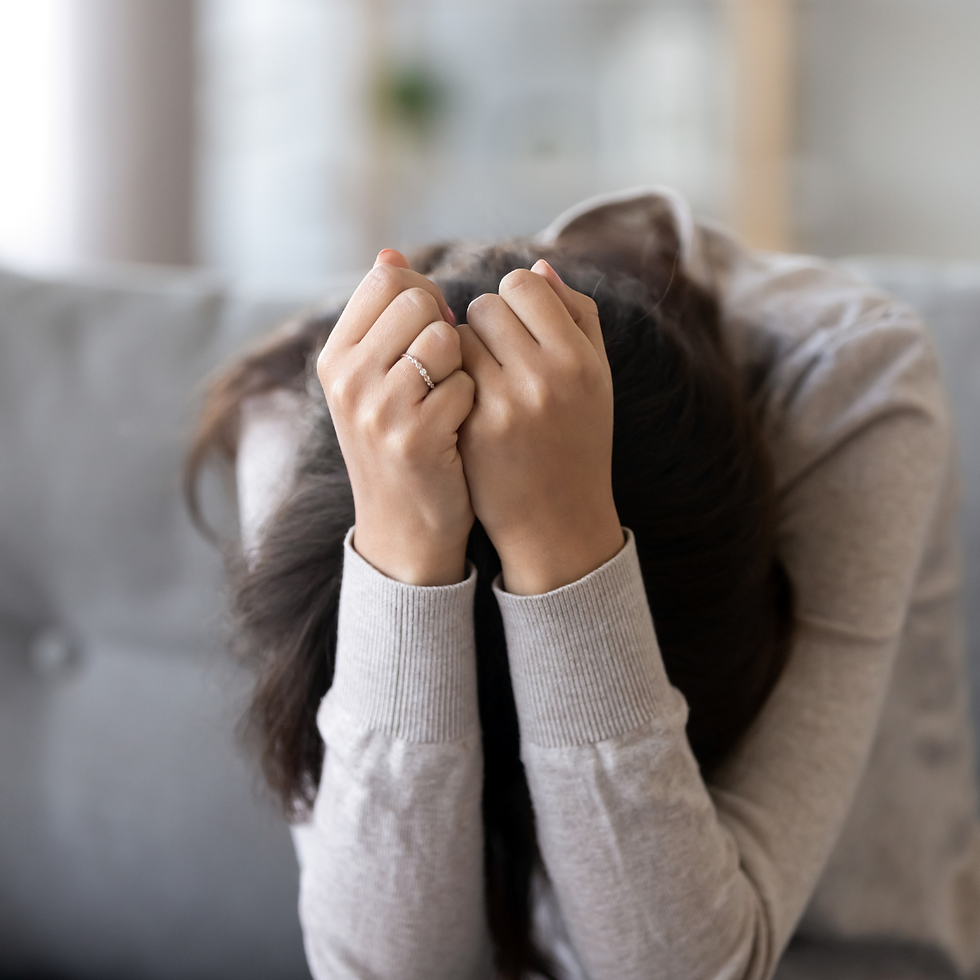
Here’s the thing. Avoiding anxiety-provoking situations actually fuels more anxiety about it! (That’s a long – but interesting – story for another article). In the meantime, everyone struggling with sleep problems knows that the harder we try to sleep, the worse it becomes. So, what’s the point of going, if you can’t sleep, you ask?
1. Give Yourself Permission to be Tired
Consider this: Can your vacation be meaningful, if not perfect? Can you enjoy the change of scenery, the change of pace? Can you stop and smell the flowers – even if you’re sleep deprived? Can you enjoy the company and the break from your stressful work?
If you can surrender to the possibility – ok, maybe even probability – of not sleeping well on your trip, reframe your vacation goals, and lean into the imperfection, then yes! Go for it! I’ve spoken to so many people who, after resetting their expectations, came back reporting that they actually slept much better than they imagined! Maybe the first night or two was rough, but coming from a place of acceptance, and focusing on stopping to smell the flowers, despite being tired, they were able to relax and stop trying too hard to sleep. Guess what? More often than not, they were surprised to find that they slept okay and ended up enjoying their precious time away. Meaningfulness is the new happiness, after all.
But anxiety about sleep isn’t the only problem. There are various factors that often contribute to difficulty sleeping while on vacation. Here are a few common culprits:
Unfamiliar Environment: Sleeping in a different bed or a new environment can make it challenging to relax and fall asleep easily.
Jet Lag: Crossing different time zones can disrupt our body's internal clock, leading to difficulties in adjusting to the new sleep-wake schedule.
Excitement and Anxiety: The anticipation and excitement of a vacation, coupled with any underlying anxiety, can make it harder to wind down and fall asleep peacefully.
Noise and Light: Noisy hotel rooms, unfamiliar sounds, or excessive light can disrupt your sleep patterns, especially if you're used to a quiet and dark bedroom.
That doesn’t mean there aren’t concrete things we can do to improve the chances of better sleep while travelling. Here are some helpful tips:
2. Plan Ahead for Comfort
When booking accommodation, prioritize comfort and choose a place that offers a conducive environment for quality sleep. Look for rooms with comfortable beds, blackout curtains, and soundproofing if possible. If you're a light sleeper, consider asking for a room away from noisy areas such as elevators or main roads. Researching accommodation options beforehand can greatly enhance your sleep experience while on vacation.
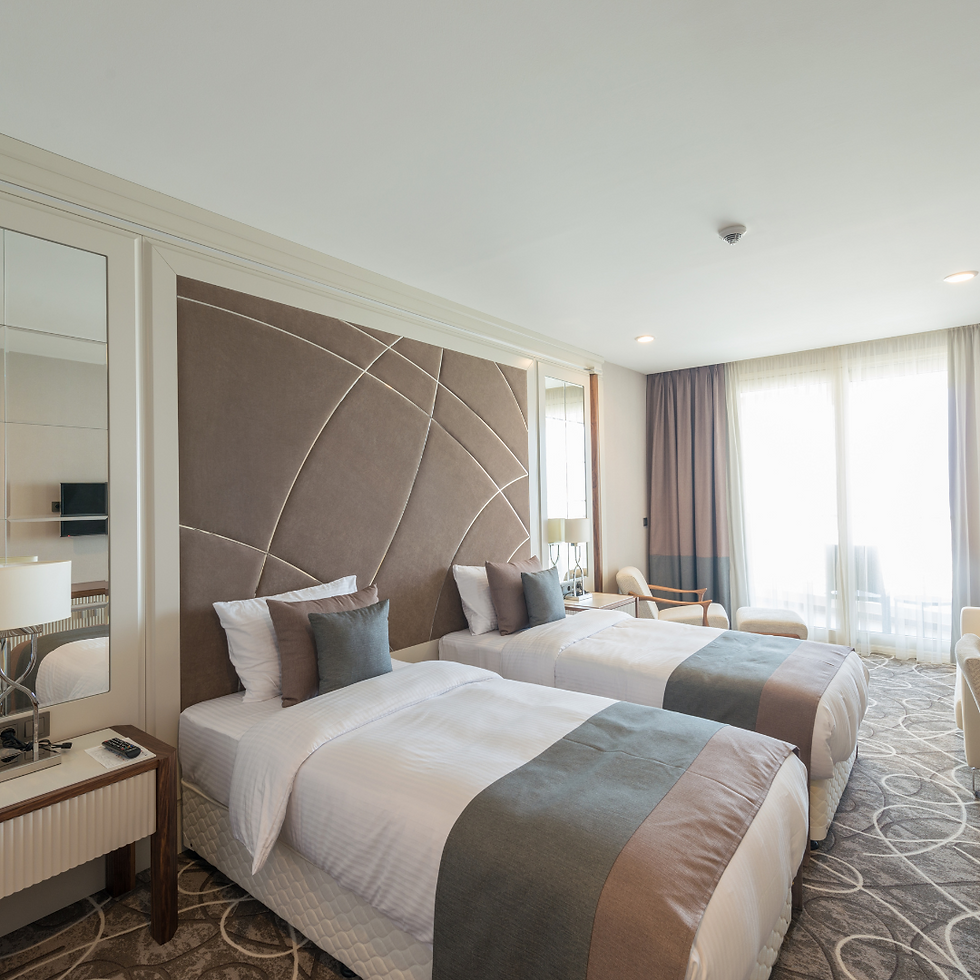
3. Plan Ahead to Reduce Jet Lag
Gradually adjust your sleep schedule. Start adjusting your sleep schedule a few days before your trip to match the time zone of your destination. There’s an app for that. Created by mathematicians, Entrain app can help you calculate how to adjust your sleep and wake schedule in advance. But don’t worry too much if that’s not practical. You will likely adjust eventually to the new time zone.
4. Maintain a Consistent Sleep Schedule
While vacations are a time to relax and break from routine, maintaining a consistent sleep schedule as much as possible can help to adjust to the new time zone and improve sleep quality at night. Our bodies have an internal 24-hour biological clock called the circadian rhythm, which helps regulate our sleep-wake cycle. By going to bed and waking up at similar times each day, as much as possible, even on vacation, you can help maintain a stable sleep pattern, making it easier to fall asleep and wake up feeling refreshed.
5. Create a Relaxing Bedtime Routine

Establishing a pre-sleep routine signals to your body that it's time to wind down and prepare for rest. Think of it as a buffer zone, the transition between your busy day and your peaceful sleep. Consider enjoyable activities that help you relax, such as reading a book, taking a warm bath, practicing deep breathing exercises, or listening to calming music. As much as possible, by following your usual bedtime routine – assuming that doesn’t include reading work emails! –you'll condition your mind and body to transition into sleep mode more effectively, regardless of your location.
6. Dim the Lights and Minimize Electronic Devices
The blue light emitted by artificial lighting, especially electronic devices, such as smartphones, tablets, and laptops, can interfere with our sleep patterns by suppressing the production of melatonin, a hormone that regulates sleep. As well, did you know that blue light is the most stimulating part of the full natural light spectrum? And while bright natural daylight can be extremely important for circadian rhythm, daytime alertness and sleep at night, light exposure too close to bedtime can also be activating at the wrong time. So, before bedtime, try to limit your exposure to screens – as well as white light in general – at least one hour in advance. Instead, engage in winding down activities to help prepare your mind for a restful sleep. Consider wearing blue light blocking glasses with an amber/orange or red lens (note: clear lenses with blue light filters are not generally adequate for this purpose). The following options have been found in research to be quite effective:
You might also want to pack a blue light blocking clip-on book light like this one for the plane, hotel, or even your tent!
7. Pack Sleep Essentials
When packing for your vacation, don't forget to bring items that contribute to a comfortable sleep environment. An eye mask can block out light, so disruptive to both sleep and circadian rhythm. Travelling or not, one study even found that wearing an eye mask overnight can help improve memory and alertness during the day! Earplugs can minimize noise disturbances. Consider downloading a white noise app to help drown out annoying environmental noises. And if you're sensitive to unfamiliar surroundings, a familiar pillow or blanket from home can provide a sense of comfort and familiarity, setting the stage for a better night's sleep.
8. Practice Stress Reduction Techniques
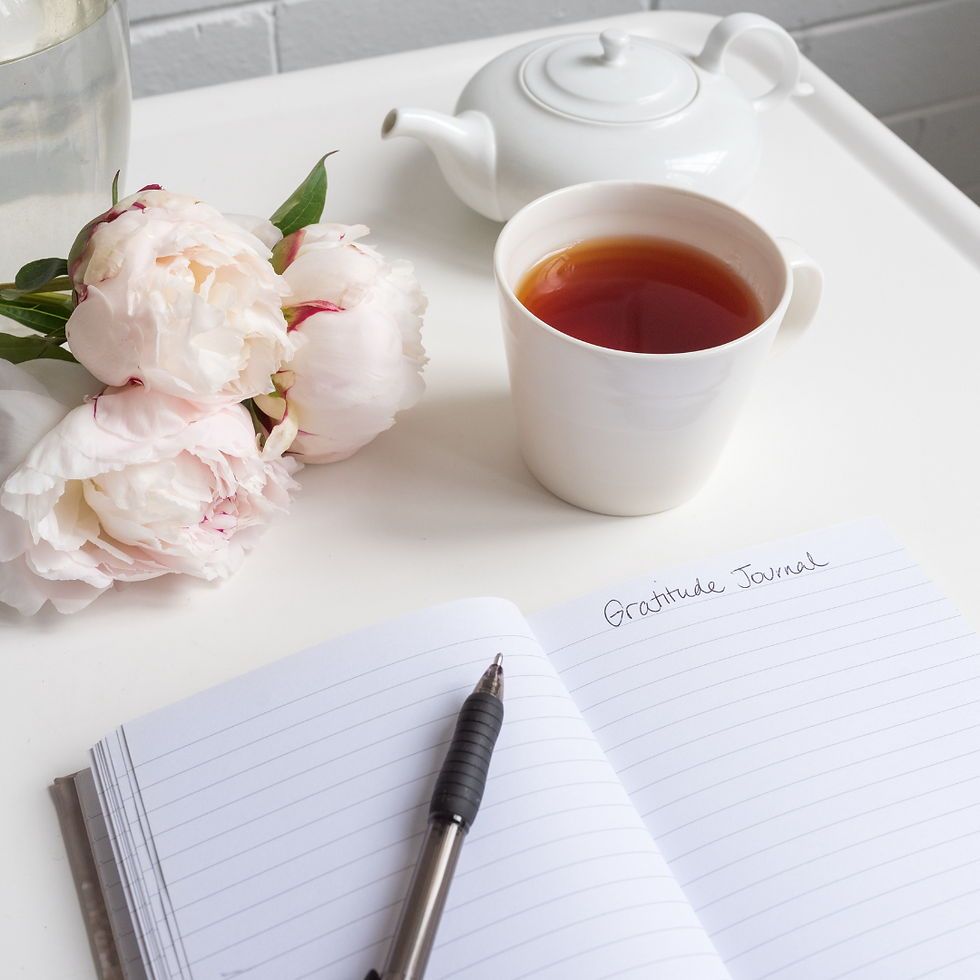
Vacations are meant to be stress-free, but sometimes travel logistics or unfamiliar environments can induce anxiety. Engaging in stress reduction techniques, such as meditation, yoga, or journaling, can help calm your mind and prepare it for a good night's sleep. Additionally, incorporating regular physical activity during the day can also contribute to reducing stress while building up your sleep drive to promote better sleep at night. But be careful to avoid trying too hard to relax. As with sleep, the harder we try, the more we fail. (If you haven’t already, subscribe to our newsletter to receive a copy of Why Relaxation Strategies for Insomnia can Backfire – and what to do instead).
9. Avoid Excessive Alcohol and Caffeine
While indulging in local delicacies and savoring exotic beverages can be a wonderful part of the vacation experience, it's important to be mindful of their effects on your sleep. Consuming alcohol or caffeine close to bedtime can disrupt your sleep quality and cause nighttime awakenings. Instead, opt for herbal tea or other non-caffeinated, soothing beverages in the evening. And if you really don’t want to pass up the alcohol, remember: the earlier and further from bedtime, the better. If you’re willing to accept that you may be more tired tomorrow, perhaps its worth the special treat. You’re on vacation, after all.
10. Enjoy your Well-deserved Getaway with these Vacation Sleep Hacks
Forget wishing for a guarantee of great sleep. With these vacation sleep hacks in mind, you can reduce the sleep-sabotaging anxiety about whether or not you’ll sleep – and increase the possibility of a restful retreat. Prioritizing comfort, adhering to a consistent sleep schedule, establishing a relaxing bedtime routine, and implementing stress reduction techniques will set the stage for a rejuvenating sleep experience. Most importantly, keep in mind that even though it may be preferable, it’s not essential, to have perfect sleep in order to have an enjoyable, meaningful vacation.
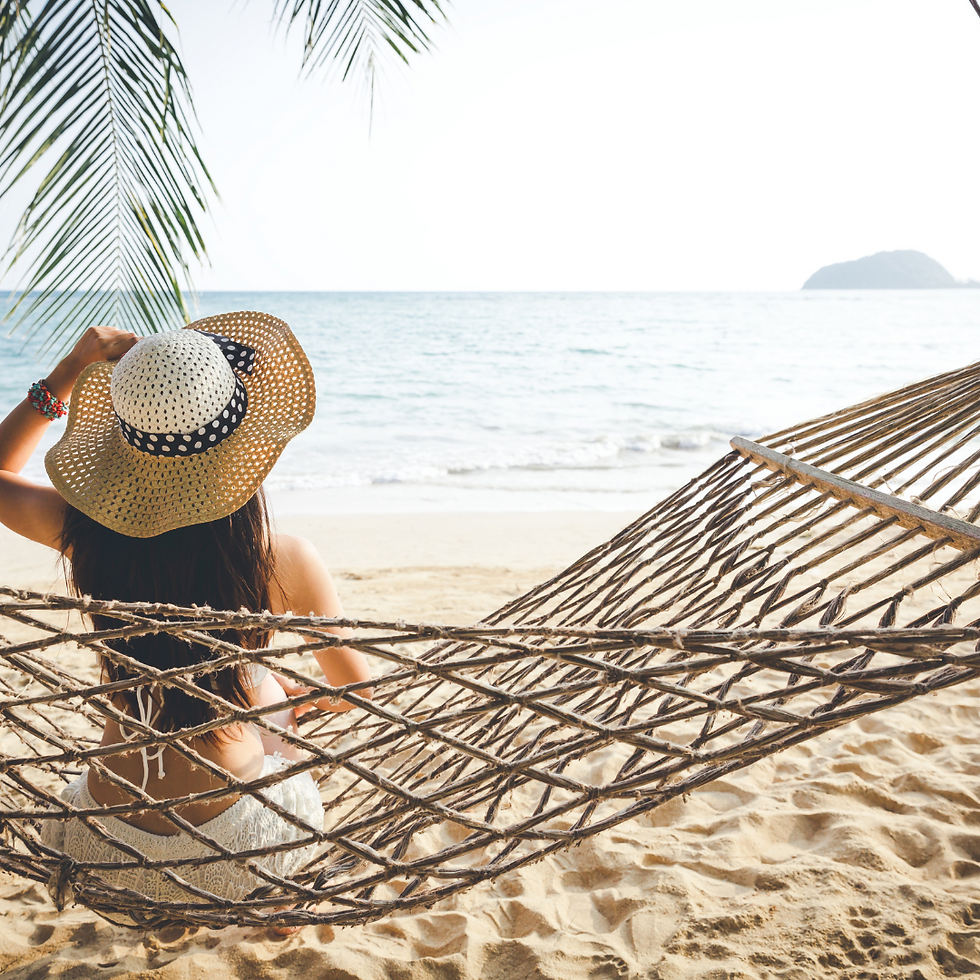
Whether travelling or not, aiming to change the things you can control – and accepting the things you can’t – is a great recipe for better sleep. And no matter what happens on your trip, remember to stop and smell the flowers.
Bon voyage and sweet dreams!
Looking for more help to get your sleep back on track? Send me a message to join the waitlist for one-on-one CBT-I or our new therapist-guided digital CBT-I program. Or get started right away by signing up for my online self-paced program on Effective Natural Strategies for Chronic Insomnia.
Share the love – and the sleep ❤️
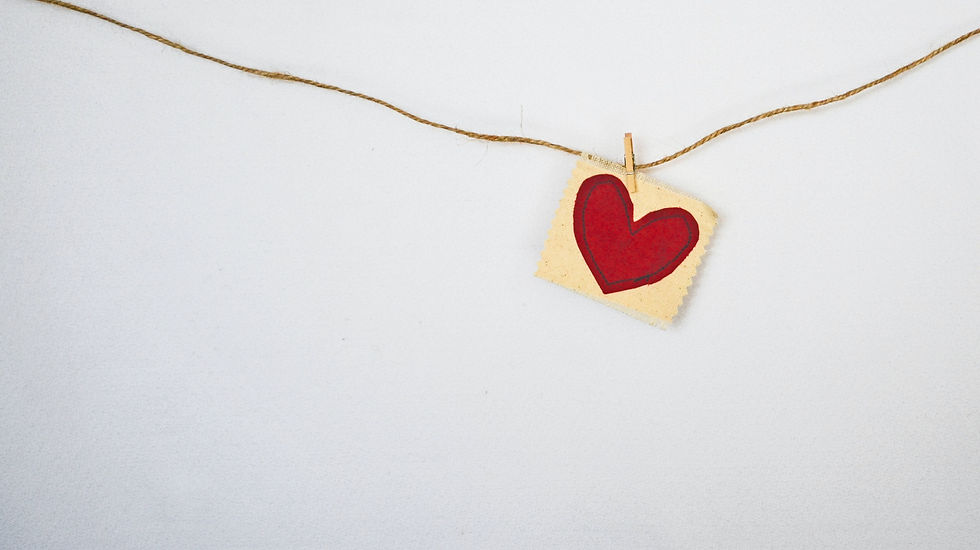
Know someone worried about their vacation sleep?
Share this article if you think they could benefit.
Join us on social media for more tips for better sleep:


Comments